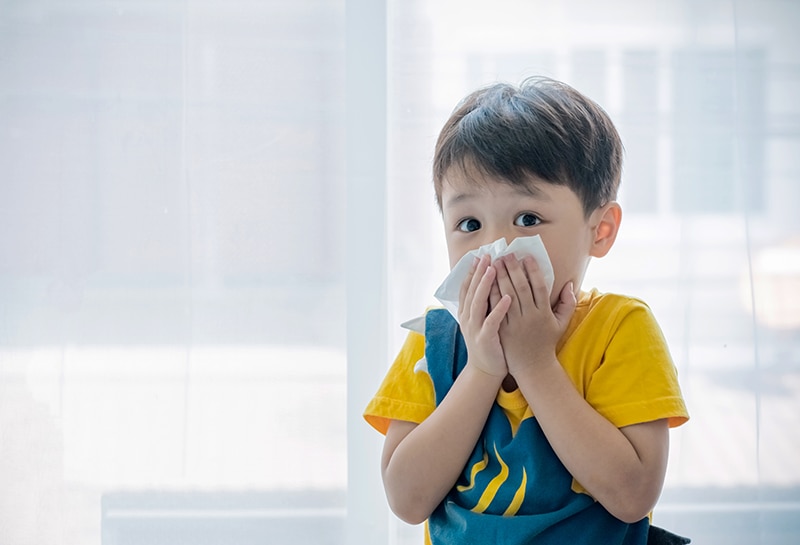B&C
|Carousel main title
Main title
Is it hay fever or do I have a cold?

Summary
1Signs of hay fever
Hay fever (sometimes called allergic rhinitis) is a common allergic reaction to pollen, which is why symptoms usually
2Less common hay fever symptoms
If you’ve had hay fever for a long time, you might have noticed it's changed as you’ve gotten older
3Signs of hay fever
Hay fever (sometimes called allergic rhinitis) is a common allergic reaction to pollen, which is why symptoms usually
Nutritional information
| Per | 100g | Serving (300g) |
|---|---|---|
| Sugar | 498Kj | 13% |
| Potato | 119 kcal | 100% |
| Cat | 1.5g | f4.7g |
Grid Area
Introduction to hay fever
Starting with the basics, what is hay fever? Usually at its worst when the pollen count is at its highest (between March and September), hay fever is an allergic reaction to pollen that causes a range of symptoms that are similar to a cold.
What is a cold?
On the other hand, a cold is classed as a mild viral infection of the nose, throat, sinuses and upper airways.2 The NHS lists the following ways you can catch a cold by:2
- Touching an object or surface contaminated by infected droplets and then touching your mouth, nose or eyes.
- Touching the skin of someone who has the infected droplets on their skin and then touching your mouth, nose or eyes.
- Inhaling tiny droplets of fluid that contain the cold virus – these are launched into the air when an infected person coughs or sneezes.




Body Title Test
Has the seasonal influx of pollen got you wondering if your sneezing and runny nose are signs of hay fever? Or could it be a summer cold?
Roughly one in five people in England experience hay fever at some point in their life.And while pollen allergies are common, recognising hay fever symptoms isn’t necessarily straightforward.
With symptoms such as sneezing, a runny nose, sore eyes and coughing, hay fever shares many symptoms with the common cold.
But when the signs of hay fever aren’t spotted early, the allergy may continue, causing many to suffer for weeks unnecessarily.
Let’s explore everything you need to know about hay fever – from what it is to the key signs to watch out for.

Body Title Test to See if there is a char limit and how it will affect the page
Has the seasonal influx of pollen got you wondering if your sneezing and runny nose are signs of hay fever? Or could it be a summer cold?
Roughly one in five people in England experience hay fever at some point in their life.And while pollen allergies are common, recognising hay fever symptoms isn’t necessarily straightforward.
With symptoms such as sneezing, a runny nose, sore eyes and coughing, hay fever shares many symptoms with the common cold.
But when the signs of hay fever aren’t spotted early, the allergy may continue, causing many to suffer for weeks unnecessarily.
Let’s explore everything you need to know about hay fever – from what it.
Has the seasonal influx of pollen got you wondering if your sneezing and runny nose are signs of hay fever? Or could it be a summer cold?
Roughly one in five people in England experience hay fever at some point in their life.And while pollen allergies are common, recognising hay fever symptoms isn’t necessarily straightforward.
With symptoms such as sneezing, a runny nose, sore eyes and coughing, hay fever shares many symptoms with the common cold.
But when the signs of hay fever aren’t spotted early, the allergy may continue, causing many to suffer for weeks unnecessarily.
Let’s explore everything you need to know about hay fever – from what it is to the key signs to watch out for.
Another text section title
The advice in this article is for information only and should not replace medical care. Please check with your GP or healthcare professional before trying any treatments or remedies.
Links to sources here.













